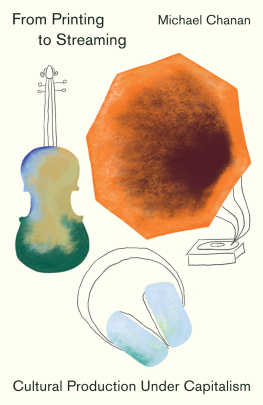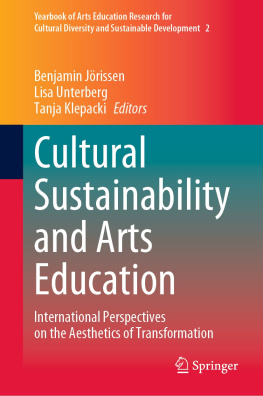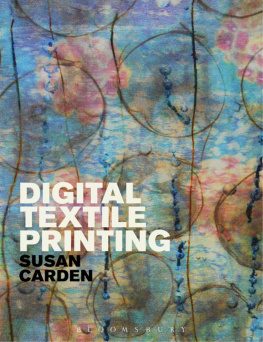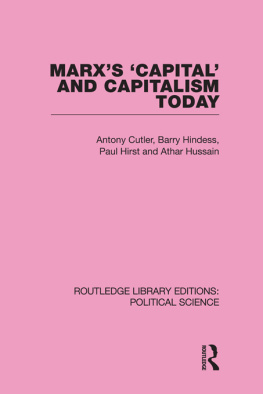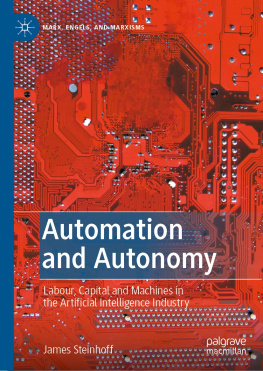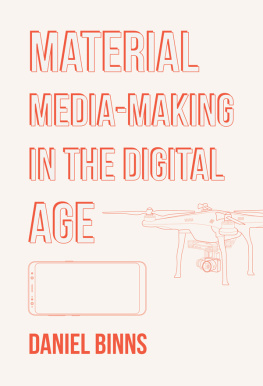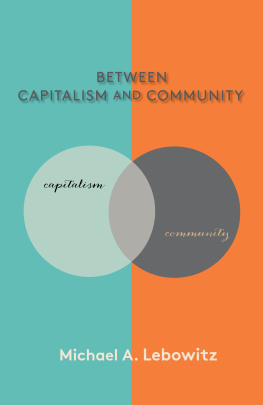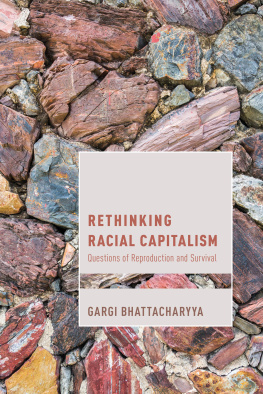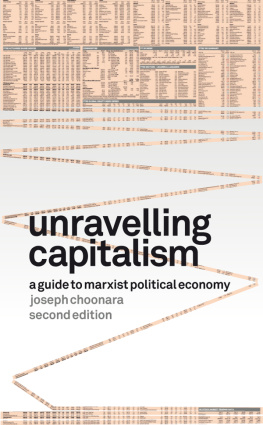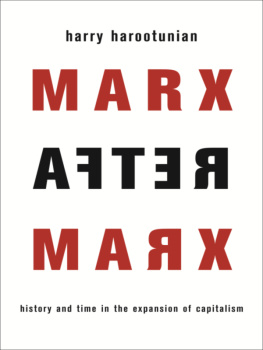Contents
Guide
From Printing to Streaming
Chanans rich historical investigations of the evolving technologies of artistic production provide a fascinating new basis for a politics of culture.
Michael Hardt, author of The Subversive 70s
Drawing on nearly fifty years of writing and teaching about the media and making films, Michael Chanan presents us with a series of overlapping histories of different media technologies, and the discourses developed around them, which is both authoritative and original.
Julian Petley, Honorary and Emeritus Professor of Journalism,
Brunel University
Marxism and Culture
Series Editors:
Professor Esther Leslie, Birkbeck, University of London
Professor Michael Wayne, Brunel University
For Humanism:
Explorations in Theory and Politics
Edited by David Alderson and Robert Spencer
Red Planets:
Marxism and Science Fiction
Edited by Mark Bould and China Miville
Marxism and the History of Art:
From William Morris to the
New Left
Edited by Andrew Hemingway
Magical Marxism:
Subversive Politics and the Imagination Andy Merrifield
Philosophizing the Everyday:
The Philosophy of Praxis and the Fate of Cultural Studies John Roberts
Dark Matter:
Art and Politics in the Age of Enterprise Culture
Gregory Sholette
Constructed Situations:
A New History of the Situationist
International Frances Stracey
Fredric Jameson:
The Project of Dialectical Criticism Robert T. Tally Jr.
Marxism and Media Studies:
Key Concepts and Contemporary
Trends
Mike Wayne
From Printing to Streaming
Cultural Production Under Capitalism
Michael Chanan

First published 2022 by Pluto Press
New Wing, Somerset House, Strand, London WC2R 1LA and Pluto Press Inc.
1930 Village Center Circle, Ste. 3-384, Las Vegas, NV 89134
www.plutobooks.com
Copyright Michael Chanan 2022
The right of Michael Chanan to be identified as the author of this work has been asserted in accordance with the Copyright, Designs and Patents Act 1988.
British Library Cataloguing in Publication Data
A catalogue record for this book is available from the British Library
ISBN 978 0 7453 4095 1 Hardback
ISBN 978 0 7453 4096 8 Paperback
ISBN 978 1 78680 801 1 PDF
ISBN 978 1 78680 802 8 EPUB
This book is printed on paper suitable for recycling and made from fully managed and sustained forest sources. Logging, pulping and manufacturing processes are expected to conform to the environmental standards of the country of origin.
Typeset by Stanford DTP Services, Northampton, England
Simultaneously printed in the United Kingdom and United States of America
For Rosa Martha
Contents
Series Preface
Michael Chanans addition to the Marxism and Culture series is a work that is historical and materialist in all the right ways. Materialism, in the sense operationalised in these pages, matters because capitalism is itself peculiarly allergic to matter. The singularities of cultural mediums and the singularity of the aesthetic products they produce pose questions for an economic system premised on abstracting away all difference, all concrete labour, into the homogeneity of exchange value. Materialism means a double conception of matter: matter as a bodily form, whether of a vendible good or the body of performers and the materiality of social forces that comes from relations. Bodily forms always work in an invisible force field of relations and relations depend on bodily forms to work between. The bodily form of the book and the creative work that makes it is quite different to the bodily form of music. Photography, film, radio, music, television: there are multiple histories to be found in this book.
Outside of the digital world the vendible form of cultural products is different and even in digital form each have different attendant modes of production and consumption. These differences pose resistance to how they can be made into profitable commodities. Full subsumption under capital is elusive, replacement of artistic labour by fixed capital, difficult. As a form of craft labour, artistic production is both (so far) an ineliminable residue of older pre-capitalist forms of labour that retained their own guild autonomy and an anticipation of post-capitalist forms of emancipated labour. Labour as craft, as paid or wage labour, as professional, as unionised or not, as amateur, as above and below the line talent, in short, all the struggles to configure or contest the technical and social division of labour, is another important history woven into Chanans story. Along with labour and capital, goes tussles over ownership, control, royalties, aesthetics, monopoly capital and independents of various hues.
This book is a world away from the so-called new materialism which is popular in media studies. New materialism is a regression, bracketing off social relations in any substantive, structured sense. It is a new empiricism in many ways. The original empiricist was peculiarly also a relativist. For David Hume, every connection perceived by the senses was merely a custom imposed by the mind and no more could be said about a cause and effect than it was a constant conjunction. The new materialism has reunited empiricism and relativism, which went their separate ways for a while.
By contrast in From Printing to Streaming the reader will find fascinating mini-histories of cultural forms, their technological basis, as well as their interdependencies with the broader infrastructure of capitalism. The reader discovers secret connections between technologies, cultures, aesthetics and mediums. Pianos, clocks and print media, for example, have points of connections that a historical materialist methodology is or ought to be particularly interested in, since, as Fredric Jameson once said, history is at one level, an indivisible web.
A first condition of any approach to cultural production is to find a point somewhere between the excessive pessimism of Adorno regarding the culture industry and at the other end of the spectrum, the apologetics which celebrate the subsuming of culture into international capitalism. But this attitudinal stance must be grounded in a robust methodology of historical materialism and specifically, what Raymond Williams would call cultural materialism, of which this book is a fine example. Historically a linear approach may have its virtues, but here we see the benefits of moving sideways and backwards as well as forwards. Spatially as well, culture moves in ways that require crossing borders and continents freely.
In line with the series editors preferences, this book exhibits an authorial style that lifts it above bland academic discourse. Style is an important part of aesthetic pleasures and it also indicates creative individuation in scholarly work as well. If you can express yourself in an individuated style it would be a contradiction to not be sensitive to specificities of various sorts, such as how the technical structure of an artistic medium relates to other variables such as labour, capital, audiences, production. For historical materialism the specific and the universal can be synthesised: the materiality say of a technical structure can be synthesised with the universal or rather the pseudo-universal that is capital, and its all-encompassing pressures and patterns that accompany the drive to commodify, to exploit and to profit from culture. That larger story has always been the strength of historical materialism, but what has always been the challenge has been to then drill down into the rich deposits of cultural history. And drill down this book does.

